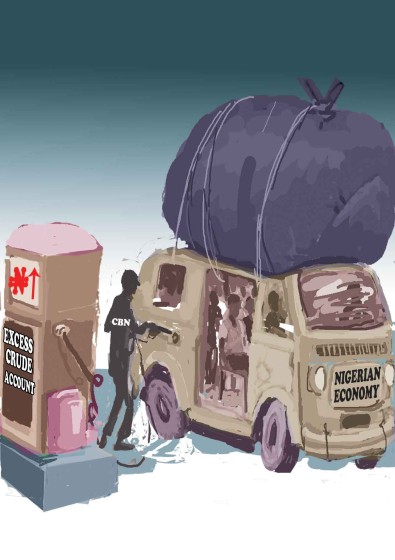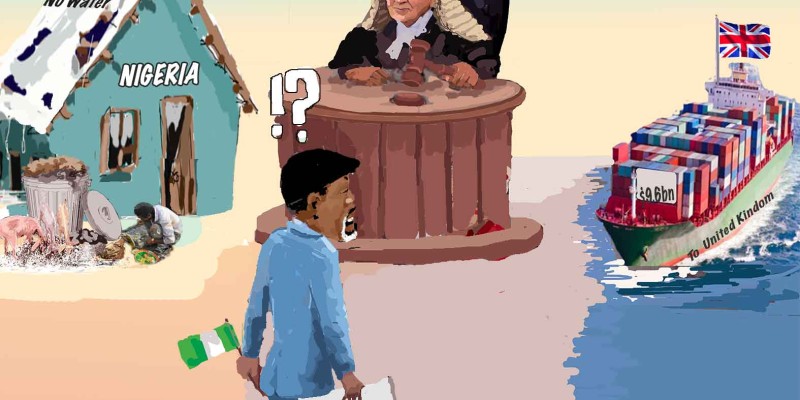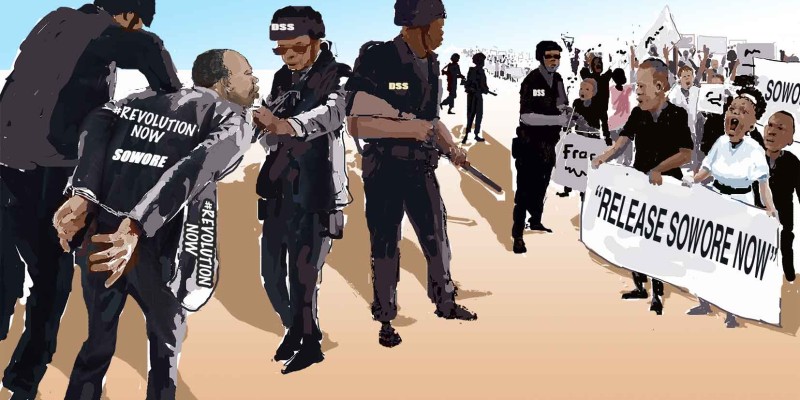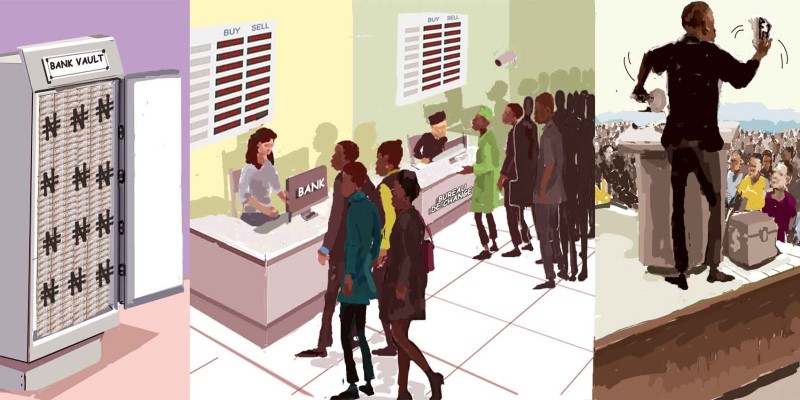QUESTIONS & ANSWERS ON NAIRA RATE
By: Sir Henry Olujimi Boyo (Les Leba) republished in March 2011
INTRO:
Last week, this column republished ‘CBN vs the People (2)’ The article emphasizes that the CBN’s mishandling of monetary tools is both unlawful and unfavourable for Nigeria’s economic progress. If you missed this article, all republications can be found in the archives using the below link.
(See www.betternaijanow.com for this series and more articles by the Late Sir Henry Boyo)
Today’s republication, like the one printed last week, is in interview style format to make it easier to gain a better understanding on monetary dynamics and the questions that Nigerians should be asking. It begins by addressing key issues plaguing the economy, and ends with recommendations that would serve to benefit Nigeria and all her people, should they be put to practice.
As you read through the below article taking note of previous events and rates, keep in mind its first republication (2011), a clear indication that Nigeria’s economic situation remains stagnant even as we face the year 2023.
1) Is the Naira’s Downward Slide Precipitated by Increased Forex Demand and CBN’s Conservative Dollar Supply?
Naira has been on a continuous downward pressure for the past three decades such that our currency depreciated from about 50 kobo/$1 in 1980 to its current suicidal rate of over N150/$1. The official explanation for such depreciation has always been the relative scarcity of dollar vis-à-vis increasing quantum of naira in the market. Even when the price of oil approached $150/barrel in 2007 – 8, and our foreign reserves ballooned to about $60bn, naira rate did not appreciate as would be normally expected in such circumstances. Indeed, inexplicably, CBN officially further devalued naira in spite of these best-ever consolidated foreign reserves, and the formal assurance that our reserves provided almost 40 months of imports cover. Curiously, we recall that naira exchanged for N80=$1 between 1996 – 8, in spite of our paltry reserve base of $4bn and not more than 6 months imports cover! This paradoxical contrast should alert discerning Nigerians of the fundamental defect in naira/dollar price mechanism
Indeed, if length of imports cover can serve as a guideline for the exchange value of a currency, then an appropriate naira rate of exchange in 2008, should be a fraction of the 1996 rate of N80=$1; but there would be no justifiable reason for the exchange rate to be above N80=$1 when we have a much healthier reserve base vis-à-vis imports requirement!
Furthermore, CBN prides itself on its adoption of what it describes as a liberalized foreign exchange market, rather than as a conservative supplier of forex. It is my view that CBN has gleefully AUCTIONED our export dollar earnings over the years to banks and in the last four years, even to Bureaux de Change (BDCs), sometimes with BDCs receiving more dollar allocations than the money deposit banks who normally service the real sector. I do not know of any serious economy that allocates dollar to BDCs, while the same country goes cap in hand to borrow the same dollars at a fee, from international “shylocks”!
2) Should CBN Defend Naira Value With Our Dollar Reserves?
One cannot describe CBN’s liberal supply of dollars to BDCs as a conservative approach to funding the forex market!
Invariably, BDCs are also the suppliers of dollars to smugglers of contraband goods, which do serious damage to the survival of local industries and also provide dollar requirement for money launderers and treasury looters!
In reality, the liberal funding of forex market by CBN is the product of the fundamentally faulty monetary framework that invariably depreciates naira value with increasing dollar earnings! It is for this reason that you will find the paradox earlier discussed where naira value fell from N80=$1 with $4bn reserves to a lowly N150=$1 with $60bn reserves and minimal external debt!
3) Does Raising Interest Rates or Selling Reserves Hold the Answer to Naira Stability?
No! Raising interest rates or selling more reserves does not hold the answer to a stable naira. In reality, our expectation under the circumstances discussed above should not be stability, but appreciation of naira.
It is wrong to talk of stability in the face of relatively increased reserves and minimal debt and the potential of continuous income from the daily sale of millions of barrels of crude oil for at least another 20 – 30 years hence, especially also when such naira rate stability does not grant us any measure of export advantage or competitiveness.
Furthermore, rising interest rates will continue to truncate the revitalisation of the industrial landscape and fuel inflation with the attendant rising costs of production. Higher production costs translate to uncompetitive local products and an encouragement to smugglers with the consequent depletion of our export dollar earnings and reduction of employment and government tax revenue!
Secondly, the liberal sale of our forex reserves at the same time that we are borrowing same dollars at a high cost appears to be voodoo economics! You don’t have to go to secondary school to appreciate that this framework does not make sense! As I said earlier, show me a country that officially allocates its export dollars to BDCs and I will show you a country with a doomed economy; this is because such a government, will, in spite of its recognition of the virtues of higher dollar reserves, decry rising crude oil prices despite its significant contribution to government revenue! I read with sadness, Sanusi’s apprehension at a recent interview in London, on the occasion of his award as the World’s best Central Bank Governor, that rising crude oil prices above $100/barrel will create problems for the beneficent management of the Nigerian economy! Can you beat that?
4) How Best Can Naira Be Stabilised?
As I said earlier, we should be talking of a significant naira appreciation rather than stability! So, the question should rather be “how can naira rate appreciate in view of the obvious benefits of a stronger naira?”
As you know, a stronger naira will bring down the rate of inflation so that all income earners get better value for their otherwise paltry incomes with increased purchasing power; stronger naira will reduce production cost for manufacturers and make our products more competitive; increased manufacturing will mean increasing employment, which would in turn increase demand and stimulate growth and establishment of further production and increased government revenue; a stronger naira is better than just stability of naira around the current level of N150=$1. Indeed, a stronger naira may even save us over N600bn currently expended on fuel subsidies every year to the detriment of social and infrastructural enhancement. A stronger naira will bring down fuel prices and provide an opportunity for government to earn significant revenue from a petrol sales tax on the 30 million litres sold every day.
The process of getting a stronger naira is not as complicated as we are made to believe! CBN’s current monopolistic auction of our export dollars is the poison in our economic framework as this system will always provide a scenario where there will always be much more naira chasing limited dollar sums sold intermittently in the forex market by CBN every week!
However, Nigerians do not recognize what precedes dollar auctions and instigates the constant presence of huge supplies of naira in the system.
The reality is that in the first instance, CBN literally captures or impounds our export dollar earnings and then proceeds to determine what it considers to be a convenient N/$ rate before substituting huge naira sums for distributable dollar revenue each month. Thus, the more dollars available for distribution, the greater will be the ‘equivalent’ naira sums created and paid to the three tiers of government. The payment of the humongous naira sums increases the cash or liquidity in the hand of the banks and also provides them with a strong platform for enormous credit disbursement to their customers! The fear of inflation that may result from such bloated spending capacity drives CBN to borrow back these funds from the same banks who are the custodians of governments’ naira allocations! This process instigates higher interest rates and increases production costs. But worse still, the huge liquidity in the system becomes pitched against much smaller dollar quantum sums sold intermittently every week by CBN. Thus, higher crude prices mean bigger dollar reserves, which also translate to suffocating excess cash or naira liquidity in the system and result in lower value naira as relatively much more naira chase less dollars all the time!
5) What Is the Way Forward for the Economy?
The answer to this question has been in the public domain for over ten years, during which time I have ceaselessly advocated for a more sensible monetary framework for the disbursement of our dollar export revenue. I have explained how CBN’s capture of distributable dollar revenue and the unilateral determination of naira exchange rate and subsequent creation and payment of huge quantum naira allocations continue to impact negatively on inflation, interest rates, industrial growth, employment, accountability, social welfare and naira value.
The obvious remedy for the above predicament, in which we become poorer and beleaguered when we earn more export dollar revenue, is to immediately stop CBN from the current practice, which distorts naira/dollar price mechanism in favour of dollar. We should recognize that the three tiers of government can own dollars as well as naira revenue and these arms of government should also have the liberty to maintain domiciliary dollar accounts with CBN in the same manner that private individuals and corporate bodies are allowed to maintain such domiciliary accounts in banks. In this event, the dollar component of monthly distributable revenue will be paid to constitutional beneficiaries of the federation pool with the instrument of dollar certificates instead of the current bloated naira warrants. Constitutional beneficiaries will then be required to approach the commercial banks to change all or parts of their dollar certificates to naira, at the prevailing market-determined exchange rate with commercial banks, since the dollar certificates are not legal tender for everyday transactions; this arrangement immediately dispels the thirty or so years scourge of so-called excess liquidity or too much cash in the system. This arrangement will immediately save the government the unnecessary burden of the increasing cost of servicing rising domestic debts (over N500bn last year), which add no real value to our social and economic welfare.
The debilitating structure of too much naira chasing too few dollars will become reversed in the absence of excess naira liquidity as dollar certificates now chase the ‘limited’ naira sums available in the system. Naira will rapidly gain strength, such that petrol prices will fall and the government will save over N500bn annual fuel subsidies, which value can be applied to infrastructural enhancement. Production and imported raw material costs will also fall, while inflation will recede to lower single digit!!
Furthermore, the reduced requirement for government borrowing via incessant liquidity mop up will induce banks to lend to the real sector at interest rates of not more than 7%! The erstwhile absent enabling environment for industrial growth and consolidation will manifest and employment opportunities will multiply.
The destructive weekly auction of our dollar earnings, which favours dollar rate, will cease and naira will once again be the currency of choice as it was in the ‘70s and ‘80s. The brain drain brought about by the ever-weakening naira will be reversed and more of our endowed ‘Nigerian expatriates’ will return home to join ongoing development and Nigeria will be truly positioned to march realistically towards realizing Vision 20:2020. It is simple, but over the years, I have recognized that those who benefit from the current skewed framework have worked tirelessly to thwart our dream!
Save the Naira, Save Nigerians!







